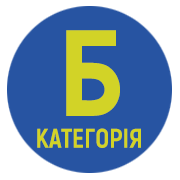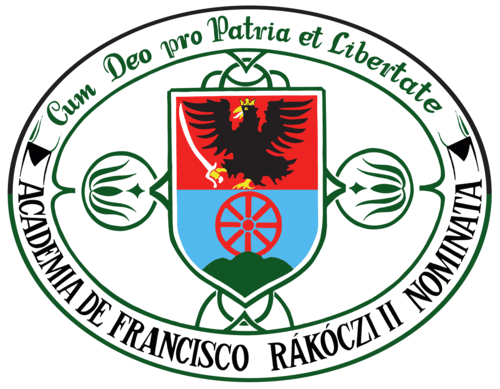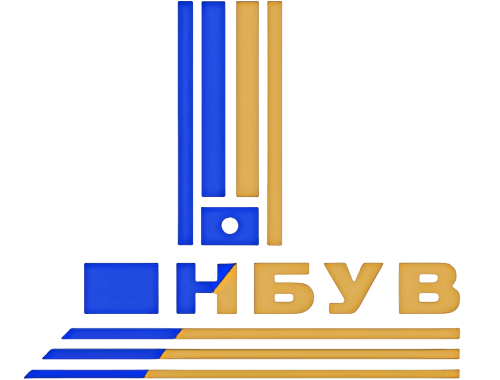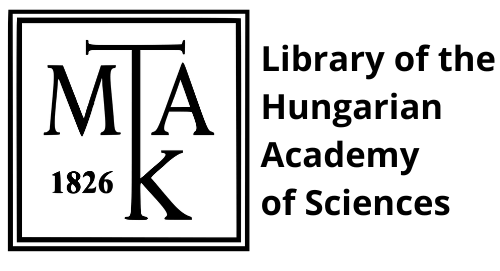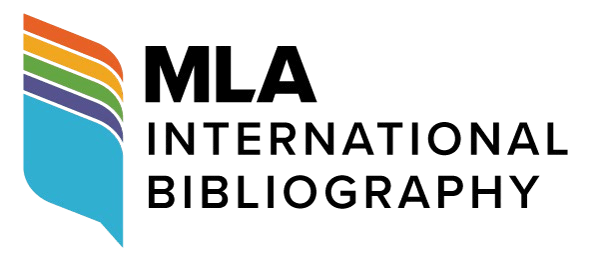Symbolism of the texts of sanctified manuscripts
DOI:
https://doi.org/10.58423/2786-6726/2024-2-197-219Keywords:
symbol, sanctified manuscript, literature, textAbstract
Symbols have always been an integral and permanent part of our poetry. Although their presence may be fading, they will never completely disappear. Symbols simultaneously influence both our conscious and subconscious thought, providing interpretive variations to encode meaning. A single word can often encapsulate an entire existential feeling that we might not be able to express or describe more clearly and emotionally, even with the help of a paraphrase. Of course, there are times when our emotional or even social circumstances prevent us from making specific declarations, manifestations. This study examines the textual symbolism of a sanctified manuscript collected in Solovka, a village located in Transcarpathia. The research’s mentioned source area is a settlement that has received little attention in the academic literature. The study offers insight into the traditional spirit that is still evident in the religious communities of the settlement today. It provides an opportunity for a deeper, reinterpreted understanding of the texts preserved by the community and their significance. We are working at the intersection of folklore and literature. The study reveals, among other things, that there is a strong connection between the two areas. During the analysis a number of symbols were identified that carry deeper meanings, especially in natural images. We dealt separately with the meanings of the flower, the tree, the torch, the seasons and the coffin. As an example, we compared the works of lyric poets with “folk writings”, focusing on the use of symbols. During the examination of texts intended for analysis, a clear parallel between ethnography and literature became evident. This connection was demonstrated through a comparison of certain literary works, poems and texts of folk manuscripts. Poets such as Friedrich Schiller, János Arany, Endre Ady, Dezső Kosztolányi, Mihály Csokonai Vitéz, and Sándor Weöres were quoted. The study also includes comparisons of the symbolism found in texts of wedding and funeral ceremonies. Despite the significant emotional distance between these stages of human life, text analysis suggests many similarities.
References
Arany, János 1992. Toldi, Toldi estéje, Buda halála [Toldi, Toldi’s evening, The Death of King Buda]. Budapest: Európai Könyvkiadó. (In Hungarian)
Bartha, Elek 1995. Halotti búcsúztatók a dél-gömöri falvak folklórjában. I–II. [Funeral eulogies in the folklore of South Gömör villages. I–II]. Debrecen. (In Hungarian)
Cioran, Emil M. 2020. A Bomlás Kézikönyve [A Brief Handbook of Decay]. Budapest: Helikon Kiadó. (In Hungarian)
Csűri, Bálint ed. 1927. Magyar lakodalom. Vőfénykönyv [Hungarian wedding. “Groom” book]. Kolozsvár: Minerva Irodalmi és Nyomdai Műintézet. (In Hungarian)
Debreczeni, Attila ed. 2003. Csokonai Vitéz Mihály összes művei [Poems of Mihály Csokonai Vitéz, edited by Attila Debreczeni]. Debrecen: Klasszikus Magyar Irodalmi Textológiai Kutatócsoport. https://deba.unideb.hu/deba/csokonai_muvei/ (Accessed: 23. 09. 2024). (In Hungarian)
Domokos, Mátyás ed. 2005. Kosztolányi Dezső összes versei [Poems of Dezső Kosztolányi, edited by Mátyás Domokos]. Budapest: Osiris Kiadó. (In Hungarian)
Gál, Adél 2021. Halottas alkalmakra írott könyv – a salánki diktálós énekekről [Book written for funerals – about the songs of Shalanky sang by lining out]. In: Pilipkó Erzsébet – Fogl Krisztián Sándor szerk. Hitélet és vallásos kultúra a Kárpát-medencében 11. Veszprém: Laczkó Dezső Múzeum. 558–574. o. (In Hungarian)
Gál, Adél 2022. Dictation as a feature of the Reformed funerals in Transcarpathia. Narodna tvorchist ta etnolohiia 393/1: pp. 58–63.
Gál, Adél 2023. „Elmúlik Istenünk…” A temetkezés és az énekdiktálás szokása és kéziratos emlékei az ugocsai református közösségekben [„Our God is fading away…” The customs and manuscript memories of funerals and song dictation in the Reformed communities of Ugocsa county]. Doctoral Dissertation. Debrecen. (In Hungarian)
Gennep, Arnold van 2007. Átmeneti rítusok [The Rites of Passage]. Budapest: L’Harmmattan Kiadó. (In Hungarian)
Hoppál, Mihály – Jankovics, Marcell – Nagy, András – Szemadám, György 1997. Jelképtár [Symbol library]. Budapest: Helikon Kiadó. (In Hungarian)
Ipolyi, Arnold 1854/1987. Magyar Mythologia [Hungarian Mythology]. Békéscsaba: Kner Nyomda. (In Hungarian)
Katona, Imre 1978. A magyar halottas énekköltészet tiszta és átmeneti műfajai [Pure and transitional genres of Hungarian mortuary poetry]. A Hungarológiai Intézet Tudományos Közleményei 10/35: 25–33. o. (In Hungarian)
Katona, Tamás ed. 1973. Charles Baudelaire versei [Poems of Charles Baudelaire]. Budapest: Európa Könyvkiadó. (In Hungarian)
Krizsai, Fruzsina 2017. Halotti búcsúztatók funkcionális nyelvészeti elemzése [Functional linguistic analysis of funeral eulogies]. Ösvények 2017/1: 48–75. o. (In Hungarian)
Kunt, Ernő 1987. Az utolsó átváltozás. A magyar parasztság halálképe [The last transformation. The death vision of the Hungarian peasantry]. Budapest: Gondolat Kiadó. (In Hungarian)
Lukács, Krisztián Zoltán ed. 2021. Ady Endre összes költeményei [Poems of Endre Ady, edited by Krisztián Zoltán Lukács]. Szeged. (In Hungarian)
Molnár, József – Molnár D., István 2005. Kárpátalja népessége és magyarsága a népszámlálási és népmozgalmi adatok tükrében [Population and Hungarians of Transcarpathia based on census data]. Beregszász: PoliPrint Kiadó. (In Hungarian)
Nagy, Olga 1990. Az egyházi tanítástól eltérő szokások az erdélyi református népi vallásosságban [Customs different from church doctrine in Transylvanian Reformed folk religiosity]. In: Fejős Zoltán – Küllős Imola eds. Vallásosság és népi kultúra a határainkon túl. Budapest: Magyarságkutató Intézet. 124–131. o. (In Hungarian)
Pál, József – Újvári, Edit – Borus, Judit – Ruttkay, Helga 2001. Szimbólumtár: Jelképek, motívumok, témák az egyetemes és a magyar kultúrából [Symbol library: Symbols, motives, topics from universal and Hungarian culture]. Budapest: Balassi Kiadó. (In Hungarian)
Reményik, Sándor 1931. Fáklya-futás [Torch-running]. https://www.arcanum.com/hu/online-kiadvanyok/Verstar-verstar-otven-kolto-osszes-verse-2/remenyik-sandor-1DE81/romon-virag-1935-1E947/romon-virag-1EC46/faklya-futas-1EC7A/ (Accessed: 26. 09. 2024). (In Hungarian)
Sápy, Szilvia 2013. A halotti búcsúztató eredete, történeti rétegei [The origins of funeral eulogies]. Doctoral Dissertation. Debreceni Egyetem. (In Hungarian)
Sápy, Szilvia 2024. A magyar népi hitvilág elemei Ady Endre költészetében. A lelkek útja képzet [The motives of the Hungarian folk belief world in the poetry of Endre Ady. The image of the path of souls]. In: Bartha Elek ed. Vallási Néprajz 18. In memoriam Szigeti Jenő. Debrecen: Debreceni Egyetem Néprajzi Tanszék. (In Hungarian)
Schiller, Friedrich 1960. Az örömhöz. Válogatott versek [Ode to Joy. Selected poems]. Európa Könyvkiadó. (In Hungarian)
Sikos, László 2006. Vőfélykönyv [“Groom” book]. Budapest: BBS-Info Kft. (In Hungarian)
Szokolai, Katalin 2021. A vigasztalás mint lelki szükséglet megjelenése a népi siratókban [The emergence of consolation as a spiritual need in folk laments]. In: Nemes László – Hegedűs Katalin eds. Halál az irodalomban. Budapest: Magyar Hospice-Palliatív Egyesület. (In Hungarian)
Tenke, Sándor ed. 2001. Magyar Református Egyházak javainak tára. A határontúli református gyülekezetek templomai, felszerelési tárgyai, könyv- és iratanyaga. Kárpátaljai Református Egyház I-IV. Ungi Egyházmegye [The repository of the assets of the Hungarian Reformed Church. Churches, equipment, books and documents of congregations across borders. Transcarpathian Reformed Church]. Budapest. (In Hungarian)
Turner, Victor W. 1997. Átmenetek, határok és szegénység: a communitas vallási szimbólumai [Transitions, borders and poverty: the religious symbols of “communitas”]. In: Bohannan, Paul – Glazer, Mark eds. Mérföldkövek a kulturális antropológiában. Budapest: Panem Kft. 675–711. o. (In Hungarian)
URL1: Petőfi Sándor összes költeményei [Poems of Sándor Petőfi]. https://mek.oszk.hu/01000/01006/html/index.htm (Accessed: 23. 09. 2024). (In Hungarian)
URL2: Ady Endre: A műhelyben [Endre Ady: In the workshop]. https://www.arcanum.com/hu/online-kiadvanyok/Verstar-verstar-otven-kolto-osszes-verse-2/ady-endre-13441/versek-14C48/a-muhelyben-14D9C/ (Accessed: 26. 09. 2024). (In Hungarian)
Varga, Ibolya 1996. Babonák és hiedelmek Szalókán [Superstitions and beliefs in Solovka]. In: P. Punykó Mária ed. „Szem látta, szív bánta…” Kárpátaljai néprajzi és honismereti tanulmányok. Budapest – Beregszász: Hatodik Síp Alapítvány – Mandátum Kiadó. 189–203. o. (In Hungarian)
Voigt, Vilmos ed. 1998. A magyar folklór [Hungarian Folklore]. Budapest: Osiris Kiadó. (In Hungarian)
Voinovich, Géza ed. 1925. Lévay József utolsó versei. 1909–1918 [The last poems of József Lévay. 1909–1918]. Budapest. (In Hungarian)
Weöres, Sándor 1936. Pastorale. In: Nyugat, 9. szám. (In Hungarian)
Downloads
Published
How to Cite
Issue
Section
License
Authors retain copyright and grant the journal the right of first publication. The work is simultaneously licensed under a Creative Commons Attribution 4.0 International License (CC BY 4.0), which permits others to share the work with appropriate credit given to the author(s) and the initial publication in this journal.

